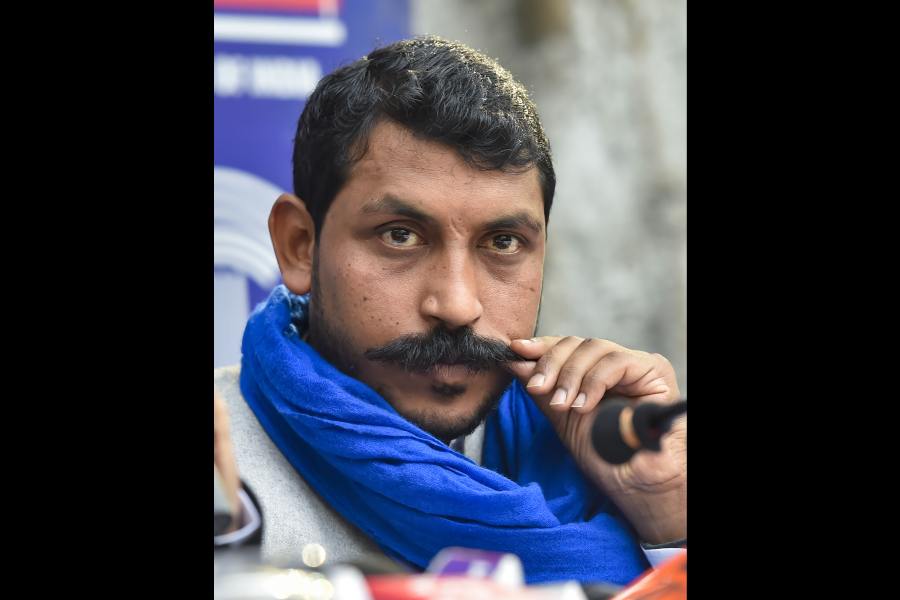The NDA government could face real challenges to actions that have often been dubbed as antithetical to the interests of Dalits and tribals as the 18th Lok Sabha has several members who built their careers fighting for the people from these communities at the grassroots level.
Activists and academicians believe the deprived sections now have a few vocal representatives in Parliament after a long time.
Leaders who are expected to raise the issues of the socially backward sections are Rajkumar Roat of the Bharat Adivasi Party, who was also supported by the Congress, Chandrashekhar Azad of the Aazad Samaj Party, Kalicharan Munda of the Jharkhand Mukti Morcha, Congress's professor Angomcha Bimol Akoijam, who won from Inner Manipur, Engineer Rashid, who won as an Independent beating Omar Abdullah in Baramulla, Mohammad Haneefa Jan, the Independent candidate from Ladakh and CPM leader Amra Ram from Sikar in Rajasthan.
Academician Ganga Sahay Meena, who hails from Rajasthan and is working as an associate professor of Hindi at Jawaharlal Nehru University, said Roat built his career raising the cultural and land rights of the Bhil tribals of Rajasthan and Gujarat.
"Roat rose from the grassroots by working on people's issues without any money and muscle power," Meena said.
Azad, who won from Nagina in UP, is known for strongly raising the Dalit issues, particularly atrocities against the community. According to the National Crime Record Bureau data, UP is one of the leading states in cases of caste-based atrocities. Azad supported the agitation against the Citizenship (Amendment) Act.
Haneefa Jan has supported the ongoing demand for statehood for Ladakh, whose 90 per cent of the population are tribals and is currently a Union Territory. He has supported the demand for inclusion of the region under the Sixth Schedule of the Constitution which would confer a special status on the hill councils, allowing them to decide on issues such as the utilisation of land and natural resources.
Akoijam has been critical of the roles of the Centre in controlling the violence in Manipur. Over 200 people have died in the sectarian violence in the state.
Jeetendra Meena, a faculty member of history at a college under Delhi University, said the NDA government has discontinued several scholarships or modified some schemes to reduce its beneficiaries. Such schemes were mostly helping the deprived sections. "The government may not be able to carry out such measures," he said.
Some of the scholarships discontinued are the Maulana Azad National Fellowship, the National Talent Search Examination through which national scholarship used to be given to 2,000 meritorious school students every year, the National Scheme of Incentive to Girls for Secondary Education and Kishore Vaigyanik Protsahan Yojana (KVPY).
The scholarship schemes, whose scope for coverage has been limited, include the pre-matric scholarship for Other Backward Classes (OBCs).
Dr Harjit Singh Bhatti, a medical practitioner fighting against the alleged discrimination of Dalits in faculty appointments in AIIMS, said the concerns of the Dalits such as discrimination in appointments, atrocities and denial of reservation will get echoed in Parliament now.











